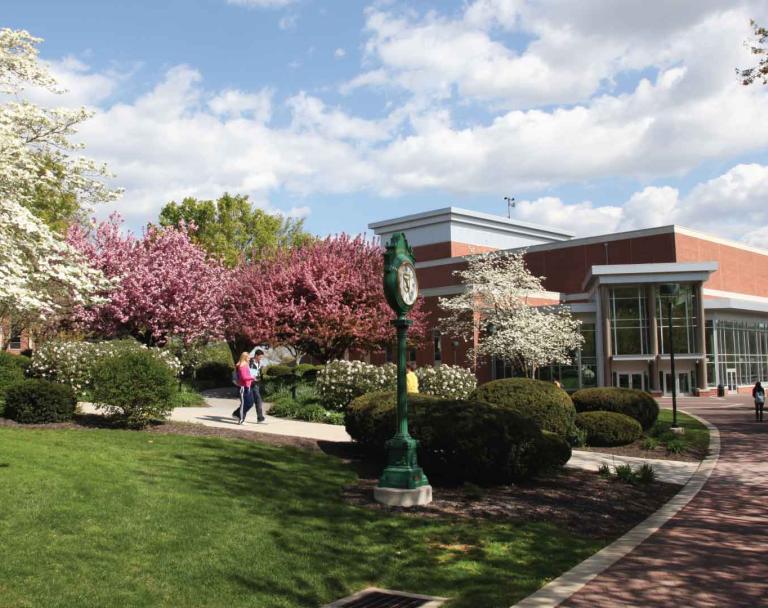SAIL Brings Faculty, Students Together To Build a Community at York College

SAIL Brings Faculty, Students Together to Build a Community at York College
June 23, 2021
The way most faculty and students interact is often transactional. York College of Pennsylvania is trying to change that.
It’s not a coincidence that the most impactful experiences of a college education have a lot to do with relationships. Whether it’s roommates or peers in the classroom, or a network that leads to internships and job connections, those relationships are the foundation of a meaningful experience.
So, when a group of Graham Innovation Scholars and Eisenhart Scholars—as part of the Engaged Scholars Honors Community at York College of Pennsylvania—got together for a retreat, they wanted to explore how they could strengthen the relationships between faculty and students.
Their early discussions led them to wonder: How could students shape the development of courses? What were the benefits of professors understanding how students learn differently from one another? When could there be opportunities for professors to learn from students?
That conversation became part of a larger initiative, known as the Student Academic Innovation Lab, or SAIL. “The question we had was, is it possible to develop mechanisms by which students and faculty talk regularly about how education happens,” says Dominic DelliCarpini, Dean of the Center for Community Engagement. “We wanted these exchanges to create better college classes and co-curricular activities, as well as stronger relationships along the way.”
A student-led initiative
As SAIL develops, students are working through a three-step process. The Starbucks Storytimes, where about 15 students and faculty members paired up over coffee to learn about each other, was a great first step, but it’s just the beginning, says Rachael Huebler ’22, a Biology major with a minor in Entrepreneurial Studies.
“There are so many students who have had really positive experiences with faculty members, and that’s what makes them feel a strong emotional connection to the College,” Huebler says. “But, not everyone has had that. We think we can grow those relationships, improve the empathy level between students and faculty, and create even stronger bonds here on campus.”
By fall 2021, the second phase will begin as students in SAIL embark on design thinking strategies, where empathy-led interviewing and problem-solving help spark ideas that will later be tested. Those tests will be the third and final step in the process, giving students helpful data to find initiatives that work.
Some of those tests might even include student-led workshops, where faculty can learn how SnapChat works, become familiar with students’ hobbies, or dive into another topic that helps make learning part of the experience for everyone.
“Most of the professors have been just as willing to participate in this as the students have been,” says Matt Sharrar ’23, a Supply Chain Operations Management major. “What we learned is that it can be daunting for first-year students to ask a professor to have a coffee with them, so we want to create easy-entry activities where that connection can happen.”
Important work
The first step in collective change is mutual respect, says DelliCarpini. “I like the way this is being done because we’re establishing that respect early,” he says. “No good classroom works without collaboration between students and faculty. Sometimes, as instructors, we get caught up in the term ‘course delivery.’ But, I wouldn’t use that term. It’s more about a cooperative learning environment.”
For Sharrar and Huebler, the opportunity goes beyond teaching them how to work in groups and learning to support each other’s strengths. It’s giving them a chance to leave a lasting mark on the College.
“This work has the potential to change the way education is delivered,” Huebler says. “That’s not a small thing. This project could change the college experience for people to come.”

